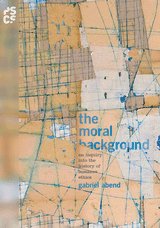- A
- A
- A
- ABC
- ABC
- ABC
- А
- А
- А
- А
- А
- HSE University
- Faculties
- Faculty of Social Sciences
- School of Sociology
- Events
- Research Seminar “The Moral Background: An Inquiry into the History of Business Ethics”
Address: 101000, Moscow,
11 Myasnitskaya Ulitsa.
Phone: 8 (495) 772-95-90 *12349
Email: izangieva@hse.ru
The School of Sociology aims to train future social analysts in sociological reasoning to address the needs of social life, business, politics, public administration, and the media. To this end, the school works to develop a close link between education and research, as well as application-oriented education, internationalization of research and education, and close networks with major employers on the labour market.
In press
Abashkin V., Abdrakhmanova G., Vishnevskiy K. et al.
M.: National Research University Higher School of Economics, 2024.
Mikhaylova O., Alexandra Bochaver, Victoria Yerofeyeva.
Frontiers in Psychology. 2024. Vol. 15.
In bk.: The Global Encyclopaedia of Informality: A hitchhiker’s guide to informal problem-solving in human life. Vol. 3: A hitchhiker’s guide to informal problem-solving in human life. L.: UCL Press, 2024. Ch. 9.7. P. 377-379.
Fabrykant M., Magun V., Милкова М. А.
SocArXiv. SocArXiv. SocArXiv, 2023

Research Seminar “The Moral Background: An Inquiry into the History of Business Ethics”
The School of Sociology invite you to the lecture of Associate Professor of Sociology Gabriel Abend (New York University) “The Moral Background: An Inquiry into the History of Business Ethics”.
Time: Tuesday 31 May, 18:15.
Venue: Myasnitskaya Ulitsa 9/11, Room 423.
If you need a pass to enter the building please contact Ekaterina Sokolova ksokolova@hse.ru
Gabriel Abend (New York University) has published widely in areas such as the sociology of morality, social theory, neuroscience, and the sociology of knowledge. His talk at the International Research Seminar in Sociology will be based on his recent book “The Moral Background: An Inquiry into the History of Business Ethics” (Princeton University Press).
In recent years, many disciplines have become interested in the scientific study of morality. However, a conceptual framework for this work is still lacking. In The Moral Background, Gabriel Abend develops just such a framework and uses it to investigate the history of business ethics in the United States from the 1850s to the 1930s.
According to Abend, morality consists of three levels: moral and immoral behavior, or the behavioral level; moral understandings and norms, or the normative level; and the moral background, which includes what moral concepts exist in a society, what moral methods can be used, what reasons can be given, and what objects can be morally evaluated at all. This background underlies the behavioral and normative levels; it supports, facilitates, and enables them.

Through this perspective, Abend historically examines the work of numerous business ethicists and organizations—such as Protestant ministers, business associations, and business schools—and identifies two types of moral background. "Standards of Practice" is characterized by its scientific worldview, moral relativism, and emphasis on individuals' actions and decisions. The "Christian Merchant" type is characterized by its Christian worldview, moral objectivism, and conception of a person's life as a unity.
The Moral Background offers both an original account of the history of business ethics and a novel framework for understanding and investigating morality in general.
- About
- About
- Key Figures & Facts
- Faculties & Departments
- International Partnerships
- Faculty & Staff
- HSE Buildings
- Public Enquiries
- Studies
- Admissions
- Programme Catalogue
- Undergraduate
- Graduate
- Exchange Programmes
- Summer University
- Summer Schools
- Semester in Moscow
- Business Internship
-
https://elearning.hse.ru/en/mooc/
Massive Open Online Courses
-
https://www.hse.ru/en/visual/
HSE Site for the Visually Impaired
-
http://5top100.com/
Russian Academic Excellence Project 5-100
- © HSE University 1993–2024 Contacts Copyright Privacy Policy Site Map
- Edit



